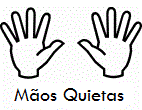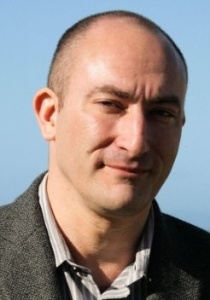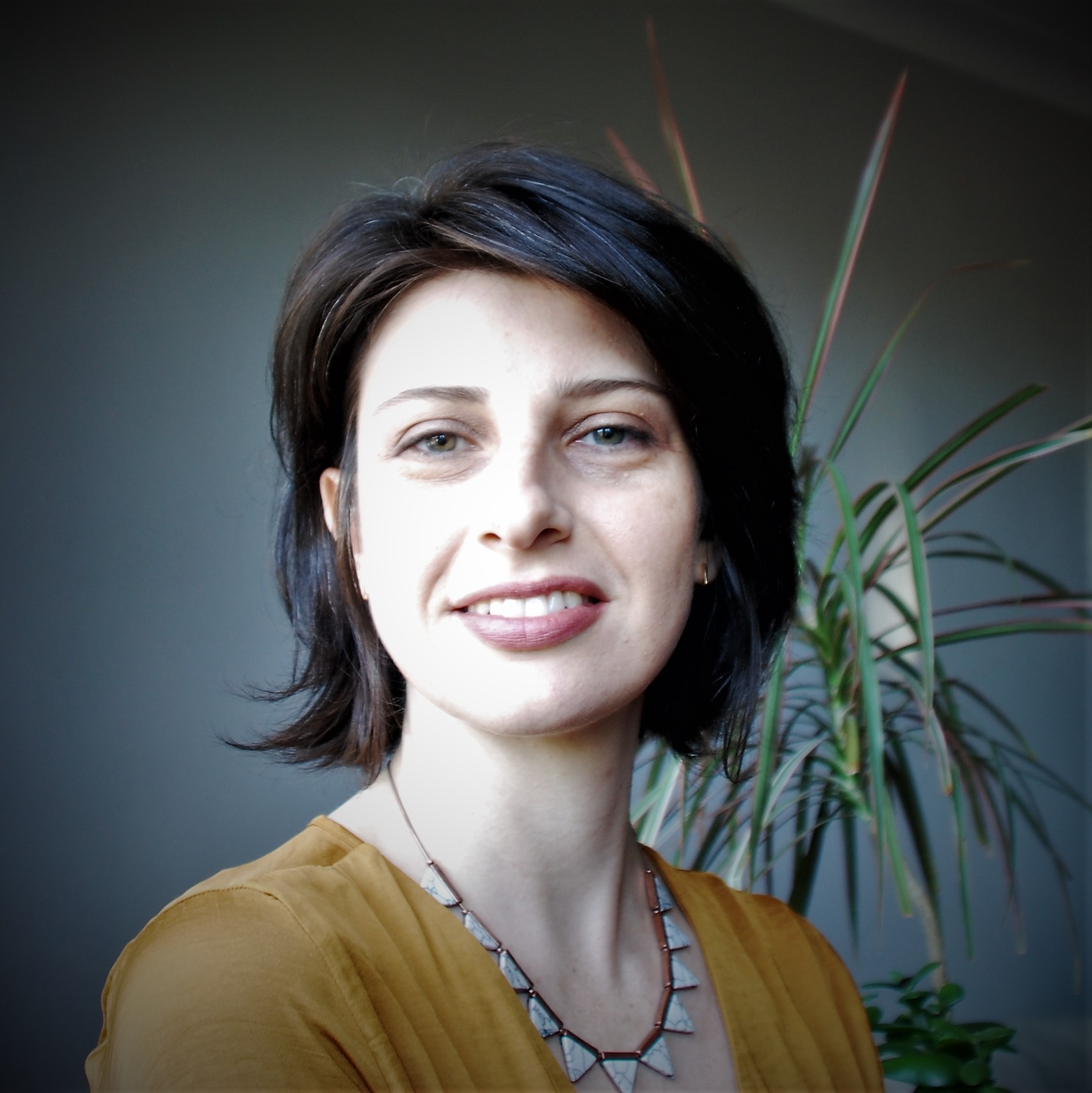Alexia Klein is a Brazilian translator and author of the blog O autismo em traducao (“autism in translation”). After her son was diagnosed with autism, she decided to use her translating skills to share English-language posts about the spectrum and neurodiversity with readers in her home country (where Portuguese is the official language).
She recently reached out to discuss translating posts from Invisible Strings, so I took the opportunity to learn more about her efforts. We spoke via email about her blog, her translating work and the current state of autism awareness in Brazil.
M: Could you describe a little about your background and how your professional interest in translation began?
Alexia Klein: I was born in Brazil, in a city called Belo Horizonte, which is the capital of a state called Minas Gerais (famous these days, unfortunately, for the break in a mining company´s dam, which caused a devastating environmental catastrophe). I went to college there and became a Pharmacist, so that’s my background. Later my interests started shifting; I went on to study History of Science and moved to Israel—where I met my husband—and then moved to New York.
My first son, Asher, was born very soon after I moved here. I wasn’t a certified Pharmacist in the US and there was this huge process and bureaucracy to be able to start working. I started gathering documents and I passed my equivalency test, but it was around the time the economy crashed and it seemed impossible to find an internship as a foreign graduate. Meanwhile, autism was already part of my everyday life. I was reading a lot and when I participated in discussion groups based in Brazil I became aware of the lack of information available in Portuguese. I wanted to share what I had with other parents. The first thing I remember wishing was translated into Portuguese was “Engaging Autism” by Stanley Greenspan. It was a time when I was trying to find alternatives to ABA, which I disliked immensely, and I realized that all the information available in Brazil on the Floortime approach, came from third parties—from someone who learned here and then was bringing it back to Brazil. I started translating short texts and started liking it. I like the craft of translating—searching for that one word that feels just right, doing research, going over the document and trying to perfect it. Later on I decided I should become a professional and I took the necessary steps to accomplish that.
M: May I ask how old your son was when he received an autism diagnosis? How did you react when the diagnosis was first given?
AK: Autism became part of my life early in 2008 when my son was about 16 months old. He had stopped saying the few words he already had and soon the gestures were gone as well. He stopped clapping, waving bye-bye and so on. I told this to his pediatrician and he just gave me a card with a number I should call. He didn’t say a word, he just gave me that card and I remember he had a very grave and somber expression as he handed it over to me. I had no idea what that meant, but I was expecting something terrible to happen. So I went home and started searching the internet. I found out that the number on that card would connect me with an Early Intervention (EI) agency and I learned what EI meant. I kept thinking of a dark commercial that was always on TV when Asher was an infant about the so-called “autism epidemic”. On the internet, all the information had very grim undertones, and the autism websites had a way of dehumanizing the children while pitying them and their families, so I would be lying if I said I wasn’t terrified and confused when I learned Asher was autistic.
M: As you grappled with that initial fear, what helped you reach a better place regarding the diagnosis? Which resources and information did you find to be the most constructive, beneficial?
AK: When I think back, in all these years, the most helpful resources were always the ones leaning towards an embracing and accepting attitude. First, the Floortime approach, then a week I spent learning about the Son-rise program, although I always saw their approach as having a conflicting nature (their ultimate goal is to “revert” autism). I think I just embraced the loving and accepting part of it, the joy in stimming together. That part was very important because around that time I stopped caring about the other negative information, which used to be so much more prevalent on the internet than positive ones, and began to trust my instincts a lot more. So, to me, to my family and especially for Asher, the Son-rise program, or the way we decided to use it (since we never adopted the intensive sessions they advocate), was a shift towards a better type of dynamic.
The downside of embracing acceptance around that time was that, in a way, I isolated myself, since I almost completely cut off my participation in the autism parents’ community. It was an organic development, because I started having a lot of disagreements with the community and I didn’t feel a connection with them.
That leads to the Autistic Community. Autistic people became the most valuable resource for me. I have no idea why it took me so long to find you guys. I think the first thing I read was from Sparrow Rose’s blog “Unstrange Mind”. It was like a better, more colorful world was opening up before my eyes. I was truly mesmerized. I started understanding Asher in ways I had never before and his relationship with me got even better. One day he was wrapped in his towel sitting by my side in the bathroom, just how he used to do every day after his shower; we were holding hands and I told him about the community and the things I was learning. I apologized to him for things I had done wrong and for taking so long to understand certain things better. He got really quiet as I was talking, his gaze changed and that day we stayed sitting there for an unusually long time.
M: I was very curious about your blog…when did you decide to begin translating posts about autism and neurodiversity into Portuguese? Did you have a specific goal or “mission statement” in mind? Forgive me if this is too obvious a question, but who is your intended audience?
AK: By the time I came across autistic bloggers I was already doing some professional work as a freelance translator. I still thought about my original idea of translating for the community of parents in Brazil, but the amount of information available in Brazil was now much larger and I didn’t have the “right” subject anymore; that one subject I felt deep inside was worth sharing. In a sense, I was lost again, like in the beginning. Years of Floortime school had prevented my son from being exposed to harsh ABA, but I didn’t feel he was valued the way should be. I didn’t feel he was being pushed intellectually and I didn’t feel the school even believed in his potential (maybe I should add that my son is non-speaking, not toilet trained, needs lots of help with most daily routines). So, when I found the autistic bloggers I was ecstatic. I searched the internet to see if that same type of conversation was going on in Brazil, hoping to find the Brazilian autistic community, but what I found were scattered texts here and there, isolated people doing self-advocacy, everything in a very embryonic stage. Not cohesive, not organized, still separating individuals according to functioning labels. I was disappointed and I remember feeling a sense of urgency in making the conversation that was taking place in the English-speaking community visible in Brazil. I was still learning all the concepts used in the movement and I learned by reading and by accepting criticism coming from within the community. I remember that my first blog post was the translation of a poem written by Amy Sequenzia and she called my attention to the way I had described her. I think I wrote that “apart from being autistic she also suffered from epilepsy”. I corrected the phrasing immediately at her request. I was eager to learn and to be a real ally.
M: From the emails and questions I receive, I’ve learned that the nature of autism awareness varies widely from one country to the next. What is it like in Brazil? When you share these translations, do you feel like there is a receptive audience to concepts like “acceptance” and neurodiversity, or is it more of an uphill climb, in terms of how people currently view autism?
AK: I think Brazilians are usually very open to new concepts at first. People tend to like the pieces about neurodiversity a lot. I think they find it interesting as a concept. I don’t know if they completely realize that embracing neurodiversity means forgetting about finding a “cure”, changing the way you speak about, see or interact with autism. I follow some online magazines and facebook groups in Brazil and there are some publications that will repost pieces about acceptance but also about finding a cure. The lines are still very blurred. It has to do with the fact that activism is still not strong enough, not loud enough over there. I am sure when it gets really loud people are going to start taking sides and that’s when things can get ugly, but to me it is also a sign that the conversation is moving forward.
As I prepared to answer these questions, I ran a search on google for “neurodiversity” and “autism”, both in Portuguese, and only a few things showed up. Surprisingly, my blog—and other blogs that reposted some of my blog posts—were among the few. The other search results were about one or two academic works on the subject, and posts of other people commenting and quoting the said work. So, it is very new there, very scarce. And when it is talked about it is by some academic who is not part of the movement. Someone just analyzing who is saying the word and in which context (the “who” is usually the community here in the United States, and this specific work I read says that it is a movement of the “high-functioning” individuals only).
Awareness in Brazil, as I see it, is still very autism-speaks-style, but there is autistic advocacy and activism sprouting here and there and sooner or later it will bloom. I am optimistic about that. At least I try to be.
M: Thanks so much, Alexia.
 simplesmente não conseguia aceitar. Consequentemente, era preciso rasgar o papel e dar descarga.
simplesmente não conseguia aceitar. Consequentemente, era preciso rasgar o papel e dar descarga.








